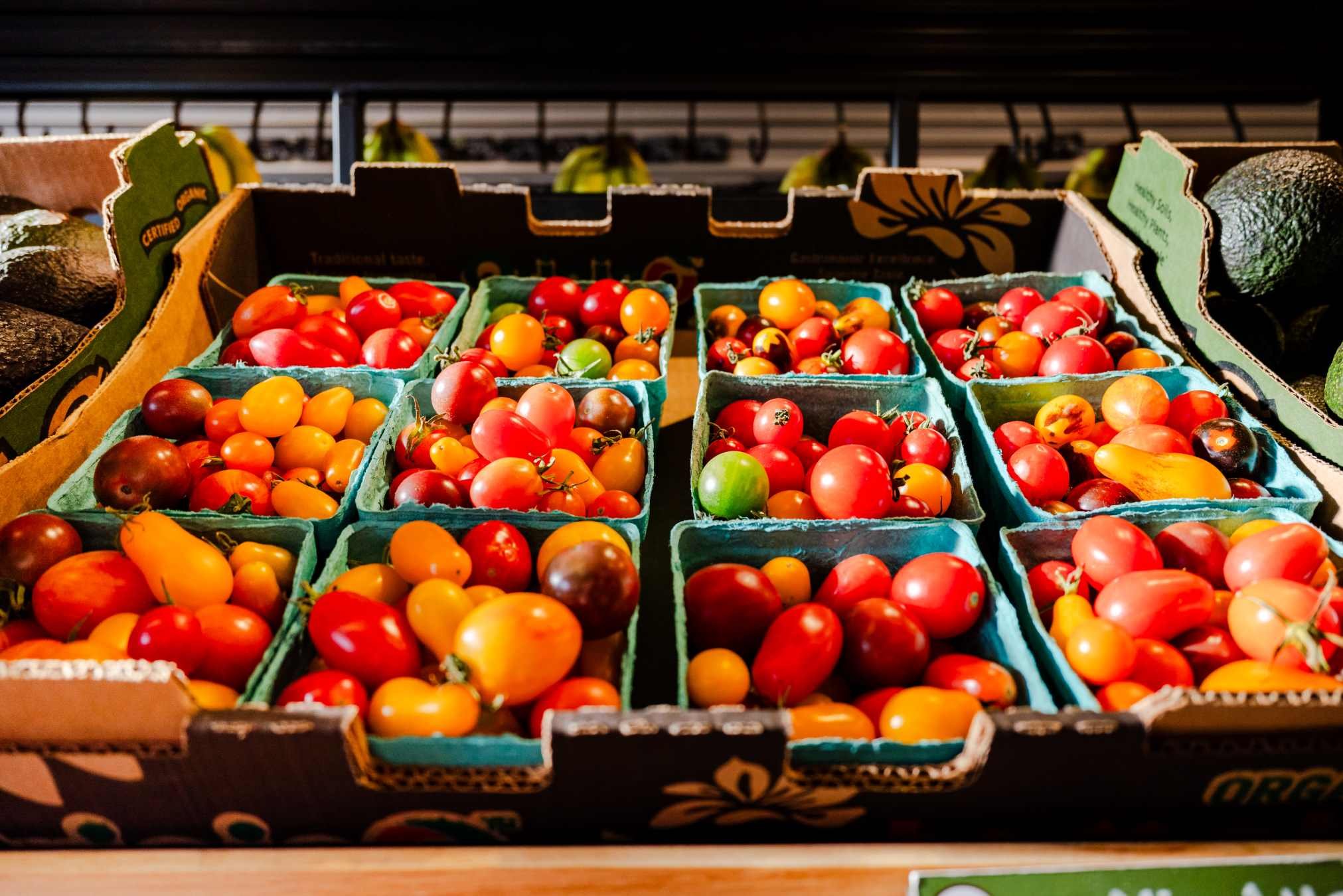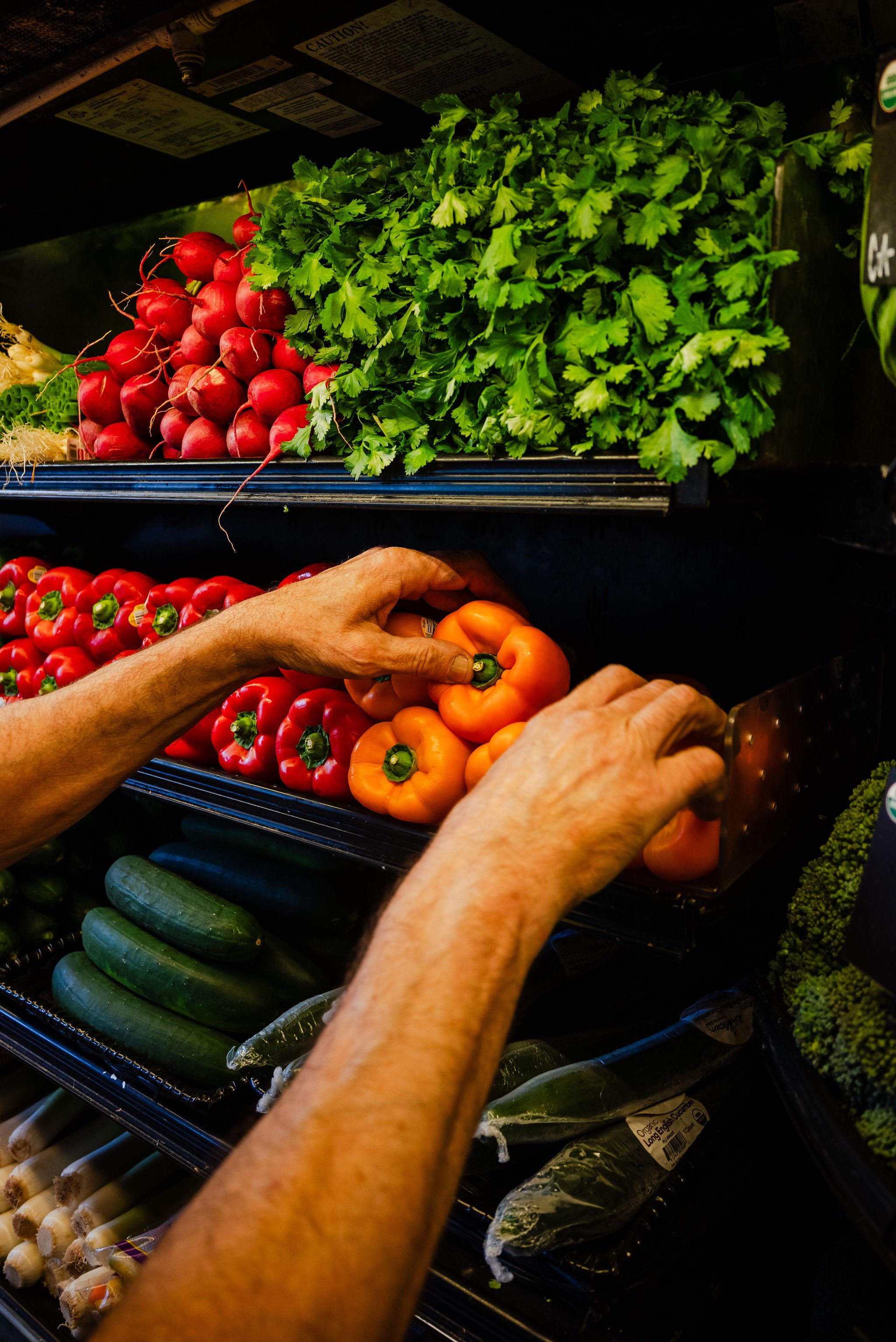
product guidelines
At Sno-Isle Food Co-op, we believe that good food brings us together. But how do we define “good food”? To us, good food is not only delicious or nutritious, it is also produced in a way that’s good for our planet, our local economy, and our community. We take pride in knowing where the food we carry comes from, what it’s made of, and how it’s grown and produced. We also apply these principles on a broader scale to the non-food items we carry.
Before stocking a product, we do our best to research its ingredients and origins to ensure it meets a majority of our guidelines.
some of our buying guidelines
We look for delicious, fresh produce and foods, high-quality pantry and bulk goods, safe and naturally produced wellness items, and select home goods.
We strive to carry items that contain no harmful ingredients or additives-for the most updated list of unacceptable ingredients-you can email info@snoislefoods.coop
We look for items that are Certified Organic, transitional, or produced using other sustainable practices whenever possible.
We love carrying goods made by other cooperatives, that are Fair Trade, or B-Corp Certified.
We give high priority to items that are locally produced. (Scroll down to view our specific definitions of local and hyper local products.)
We look for items that use minimal packaging, are recyclable, and/or compostable.
We look for foods that accommodate specialty diets and those with food allergies.
We also strive to stock products that serve a cultural need in our local community.
What local means to us
At Sno-Isle Food Co-op, our department buyers prioritize sourcing local and sustainable products at prices our customers can afford. When you buy a local product, you directly support our local economy, help keep jobs in our community, and lower the environmental impact of your purchases. But what does LOCAL mean? You can look for the following two symbols at our Co-op to know you are buying local goods defined as the following:
local
Growers, producers, and brands that are based in the Pacific Northwest*.
hyperlocal
Growers, producers, and brands that are based right here in our co-op community of Snohomish and Island counties.
*We define this area as Washington, Oregon, and Idaho
What organic means to us
A fundamental part of our mission, we strive to sell Certified Organic. Some exceptions can be made if a company can prove that they are in the midst of becoming certified, that their product is created using organic ingredients or, that they employ organic and sustainable practices, but cannot afford the hefty cost of certification. If you see the “Certified Organic” symbol, that item meets USDA standards to be labeled as such.
Other standards
We consider a variety of other certifications and attributes when choosing our products. Looks for the symbols below on items around our store.
NON-GMO Verified
Non-GMO certification is increasingly important to the health and well being of ourselves and our planet, and therefore considered when selecting product to carry at the Co-op. If the product contains any of the Top Ten GMO crops, they MUST be certified Non-GMO or be in the process of gaining said certification. There are many Non-GMO certifications, but the most common in Washington is the Non-GMO Project located in Bellingham.
B - Corporation
Certified B Corporations are businesses that balance purpose and profit. They are legally required to consider the impact of their decisions on their workers, customers, suppliers, community, and the environment. This is a community of leaders, driving a global movement of people using business as a force for good.
Fair Trade
Fair trade is trade based on a partnership between producers and consumers. When farmers can sell on Fair Trade terms, it provides them with a better deal and improved terms of trade. This allows them the opportunity to improve their lives and plan for their future. Fair Trade offers consumers a powerful way to reduce poverty through their every day shopping.
There are several organizations that give fair trade certifications. The longest standing is Fairtrade International - otherwise known as Fairtrade Labelling Organizations International (FLO). Others include Fair Trade Certified and Fair for Life.







